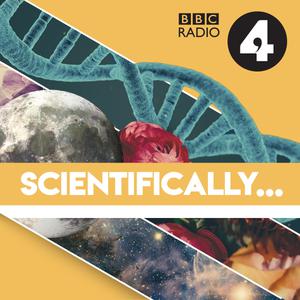
Scientifically...
BBC
Home of the best science programmes from BBC Radio 4 introduced by Dr. Alex Lathbridge.
- 15 minutes 9 seconds28ish Days Later - Day One: Power
Discover more episodes in the series by searching for 28ish Days Later on BBC Sounds.
What do you really know about the menstrual cycle? India Rakusen explores the whole bloody story, discovering facts that could change your life. Periods are just the beginning.
India Rakusen journeys into the womb with Dr. Dornu Lebari, and Dr. Jackie Maybin. We peel back the layers and meet the fallopian tubes, ovaries, cervix and the endometrium.
India is also joined by Dr. Elinor Cleghorn to discuss the ancient theories of wandering wombs, evil uterus’ and the myths that surround the womb in history.
Credits: Presented by: India Rakusen. Assistant Producer: Jorja McAndrew. Producer: Ellie Sans. Executive producer: Suzy Grant. Original music composed and performed by Rebekah Reid. Sound Design by Olga Reed.
Special thanks to all contributors and audio diarists.
A Listen Production for Radio 4 and BBC Sounds.
1 April 2022, 3:43 pm - 28 minutes 42 secondsPolitical Animals: Sex-Switching Fish and Non-Binary Brains - 3/3
Zoologist Lucy Cooke is on a mission: to break down the 'sexist stereotype' she believes has permeated our understanding of the natural world.
In Political Animals, she sets out to prove that females of the species can be just as fiesty, ardent, manipulative, aggressive, strategic, varied and political as males - questioning some of the theories laid out by the 'father of evolution', Charles Darwin, and hearing from pioneering scientists moving evolutionary biology beyond a male-centric narrative.
In the final episode of the series, Lucy considers the latest research into sex, sexuality and sexed behaviour in animals, and what that can tell us about purported differences between male and female brains.
On a twilight trip into the jungle, Brian Kubicki of the Costa Rican Amphibian Research Center explains why some male frogs could arguably be nature's best dads; Lindsay Young from Pacific Rim Conservation shows Lucy round an albatross colony at Kaena Point in Hawaii, where she discovered a trend of female-female life-long partnerships; and Justin Rhodes from the University of Illinois takes us on a remote tour of his lab, where he studies the sex-changing anemone fish.
Lucy also speaks to scientists Lauren O’Connell, Malin Ah-King and Rebecca Kilner; and considers how everyone engaged in evolutionary biology, from researchers to educators, can help build a better understanding of female experiences - and indeed all experiences - in the natural world.
Featuring excerpts from ‘The Descent of Man, and Selection in Relation to Sex’ by Charles Darwin, read by Derek Frood.
Produced for BBC Audio in Bristol by Lucy Taylor.
First broadcast on Friday 4 March 2022.
3 March 2022, 4:29 pm - 29 minutes 13 secondsPolitical Animals: Mole-Rat Queens and Genital Power - 2/3
Zoologist Lucy Cooke is on a mission: to break down the 'sexist stereotype' she believes has permeated our understanding of the natural world.
In Political Animals, she sets out to prove that females of the species can be just as fiesty, ardent, manipulative, aggressive, strategic, varied and political as males - questioning some of the theories laid out by the 'father of evolution', Charles Darwin, and hearing from pioneering scientists moving evolutionary biology beyond a male-centric narrative.
In this second instalment, Lucy explores ways in which female animals wield authority; with examples ranging from repressive mole-rat queens to ducks with deceptive vaginas, all proving that power can be about more than physical strength.
This involves a visit to the UK's only colony of naked mole-rats, overseen by Chris Faulkes at the University of London’s Queen Mary College; an introduction to the world of labyrinthine animal vaginas and their evolutionary benefits with Patricia Brennan from Mount Holyoke College in Massachusetts; and assisting with feeding time at Twycross Zoo's bonobo enclosure, as Amanda Addison and Becca Biddle explain the power of the ape sisterhood... Meanwhile Joe Cain from University College London sheds more light on Darwin’s attitude towards females.
Featuring excerpts from ‘The Descent of Man, and Selection in Relation to Sex’ and personal notes written by Charles Darwin, read by Derek Frood.
Produced for BBC Audio in Bristol by Lucy Taylor.
First broadcast on Friday 25 February 2022.
3 March 2022, 4:10 pm - 28 minutes 59 secondsPolitical Animals: Sex, Monkeys and the 'Coy Female' Myth - 1/3
Zoologist Lucy Cooke is on a mission: to break down the 'sexist stereotype' she believes has permeated our understanding of the natural world...
In Political Animals, she sets out to prove that females of the species can be just as fiesty, ardent, manipulative, aggressive, varied, strategic and political as males - questioning some of the theories laid out by the 'father of evolution', Charles Darwin, and hearing from pioneering scientists moving evolutionary biology beyond a male-centric narrative.
For the opening episode, Lucy focuses on sex: uncovering stories of the female animals defying Darwin’s “coy” label, and using sexual strategies to further their own evolutionary influence.
This takes her on a journey from soliciting capuchin monkeys in the forests of Costa Rica, to studies of promiscuous fruit flies, to the northern jacana bird in Nicaragua, which relies on a harem of males to raise her chicks. Lucy also hears from scientists and specialists including Megan Mah, Joe Cain, Sarah Blaffer Hrdy, Patricia Gowaty, Robert Trivers and Salvador Mirales.
Featuring excerpts from ‘The Descent of Man, and Selection in Relation to Sex’ by Charles Darwin, read by Derek Frood.
Produced for BBC Audio in Bristol by Lucy Taylor.
First broadcast on Friday 18 February 2022.
24 February 2022, 5:00 am - 29 minutes 6 secondsWild Inside: The Ocean Sunfish
Ben Garrod and Jess French get under the skin of Mola mola the world's largest bony fish to unravel this bizarrely shaped predator's ability to swim to a huge range of depths.
Produced by Adrian Washbourne. First broadcast on Tuesday 21 December 2021.
22 December 2021, 10:00 am - 29 minutes 11 secondsWild Inside:The Burmese Python
Ben Garrod and Jess French delve deep inside the predatory Burmese python to examine its extraordinary body plan that enables it to catch, constrict and consume huge prey whole.
Presented by Prof Ben Garrod and Dr Jess French and produced by Adrian Washbourne.
First broadcast on Tuesday 14 December 2021.
17 December 2021, 1:00 pm - 29 minutes 8 secondsWild Inside: Jungle Royalty - The Jaguar
Wild Inside embarks on something we hardly ever witness – a look inside some of nature’s most wondrous animals. Its a rare chance to delve deep into some enigmatic and very different wild animals – from a reptile, to a mammal to a fish – unravelling the intricate internal complexity inside three of the most amazing animals ever to evolve. What makes the ultimate predator? What are the keys to successful survival in an ever-changing environment? Whilst we’ve gained a lot by observing their behaviour from the outside, to truly understand these animals, we need to look at what’s on the inside too.
Ben Garrod, Professor of Evolutionary Biology and Science Engagement at the University of East Anglia, together with friend and expert veterinary surgeon Dr Jess French, open up and investigate what makes each of these animals unique. During each animal post mortem, they’re joined by experts in comparative anatomy, evolution and behaviour as they put these enigmatic animals under the knife. Along the way they reveal some unique adaptations which give each species a leg (or claw) up in surviving in the big wild world.
The series begins with one of the truly exotic loaners of the cat family – which at just over two metres long, covered with beautiful gold and black rosette markings, is pure jungle royalty - the greatest of the South American big cats - the Jaguar
Part 2: One of the largest predatory reptiles - the Burmese Python whose extraordinary singular body plan has enabled nearly 4000 species of snakes to succeed in inhabiting nearly every part of the planet,
Part 3: The largest bony fish you might never have heard of – the bizarre-looking Oceanic Sunfish which is being spotted increasingly in UK waters
Presented by Prof Ben Garrod and Dr Jess French and produced by Adrian Washbourne.
First broadcast on Tuesday 7 December 2021.
7 December 2021, 11:00 am - 28 minutesA Good Read with Adam Rutherford and Farrah Jarral
As part of Radio 4's Day of the Scientist Harriett Gilbert asks two scientists and broadcasters to choose a book on a science theme. Adam Rutherford chooses Kazuo Ishiguro's dystopian love story Never Let Me Go. Dr Farrah Jarral says when she first read the novella she has chosen - Octavia Butler's Bloodchild - it blew her mind dealing as it does with interspecies procreation and with underlying themes of control and power imbalance. Harriett Gilbert's choice is Piranesi by Susanna Clarke in which the character 'Piranesi' lives in The House populated by endless corridors and statues and The Other.
Producer: Maggie Ayre for BBC Audio, Bristol.
First broadcast on Tuesday 12 October 2021.
12 October 2021, 4:04 pm - 56 minutes 46 secondsThe Life Scientific at 10: What does it take to be a scientist?
How damaging is the stereotype of white males in white coats? Do scientists think differently? Or do the qualities we associate with being a nerd do them a disservice? Is specialism the best way to solve 21st century problems when so many great discoveries are made in the cracks between the disciplines? In short, what makes a scientist, a scientist? Jim and distinguished guests consider the lessons learnt from nearly 250 leading scientists talking with extraordinary honesty about their life and work.
And ask: has the job description changed? Success in science is often defined by making discoveries and publishing papers but, as the pandemic made clear, we also need scientists who can interact with decision makers in government and elsewhere. Do scientists need to learn new skills to participate in the decision making process? Do they (or at least some of them) need to be more outward looking, aware of the world beyond their laboratories and ready to engage? Or do the corridors of power need to open their doors to more people with a scientific training? And, if Britain is to become a science superpower, is it time that scientists stopped being squeamish about making money?
Jim's guests are Chief Executive of UK Research and Innovation, Prof Dame Ottoline Leyser; Nobel Prize winning biologist and Director of the Crick Institute, Prof Sir Paul Nurse; geologist and Royal Institution Christmas Lecturer, Prof Christopher Jackson; and forensic scientist and member of the House of Lords, Prof Dame Sue Black.
Produced by Anna Buckley.
First broadcast on Tuesday 12 October 2021.
12 October 2021, 9:21 am - 37 minutes 23 secondsThe Sir Patrick Vallance interview
As Chief Scientific Advisor to the government during a pandemic, Sir Patrick Vallance's calm, clear summaries of the state of our scientific understanding of the virus were welcomed by many. But what was going on behind the scenes? In this extended interview with Jim Al-Khalili on Radio 4's Day of The Scientist, Sir Patrick opens up and together they explore that trickiest of relationships - the one between scientists and politicians. How do we make sure we get evidence-based policy not policy-based evidence?
Scientists tend to gain prominence during a crisis but the need for scientific input to government is ever present. And as head of the new Office for Science and Technology Strategy, based in the Cabinet Office, Sir Patrick hopes to put science and technology at the heart of policy making in government. However, only about 10% of the recent fast stream civil service intake have a scientific degree. That needs to change, says Sir Patrick.
What science and technology do we need to invest in to deal with the big science-based challenges ahead, such as achieving carbon net zero, preserving a diversity of species, and protecting our privacy and slowing the spread of misinformation online? What does the UK need to do to capitalise on our scientific expertise and make Britain the science superpower that the Prime Minister hopes it will become?
Produced by Anna Buckley.
First broadcast on Tuesday 12 October 2021.
12 October 2021, 5:30 am - 57 minutes 9 secondsThe Men in the White Coats
Prof Andrea Sella on the shifting image of the scientist in popular culture, from Victor Frankenstein to Iron Man via victorious post-war boffinry and megalomanical Bond villainry.
The monster unleashed by Mary Shelley in her 1818 tale of gruesome gothic horror was in many senses not the creature itself, but the image of its careless creator. The recklessness of the lone scientist whose blind ambition fails to foresee the societal and practical consequences of his discovery or invention.
Throughout the last 150 years, the scientists in our science fictions have embodied the contemporary societal attitudes to science itself, sometimes in celebration, but often as a cartoon of our fears. At the same time professional scientists and science communicators have tried to share their work with wider audiences in an effort to democratize and enliven the endeavour.
These two approaches haven't always been in synchrony.
Presented by Prof Andrea Sella
Produced by Alex Mansfield
First broadcast on Saturday 9 October 2021.
12 October 2021, 4:15 am - More Episodes? Get the App
Your feedback is valuable to us. Should you encounter any bugs, glitches, lack of functionality or other problems, please email us on [email protected] or join Moon.FM Telegram Group where you can talk directly to the dev team who are happy to answer any queries.
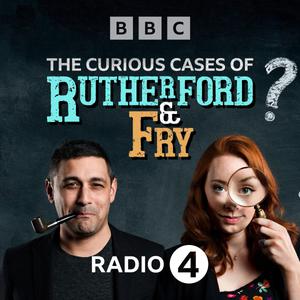 Curious Cases
Curious Cases
 CrowdScience
CrowdScience
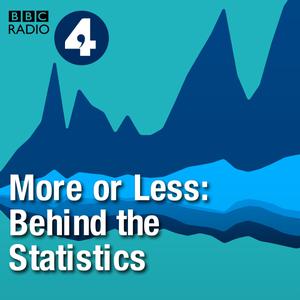 More or Less: Behind the Stats
More or Less: Behind the Stats
 The Infinite Monkey Cage
The Infinite Monkey Cage
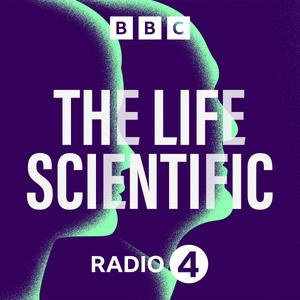 The Life Scientific
The Life Scientific
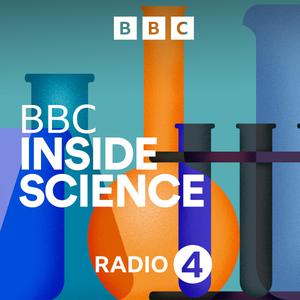 BBC Inside Science
BBC Inside Science